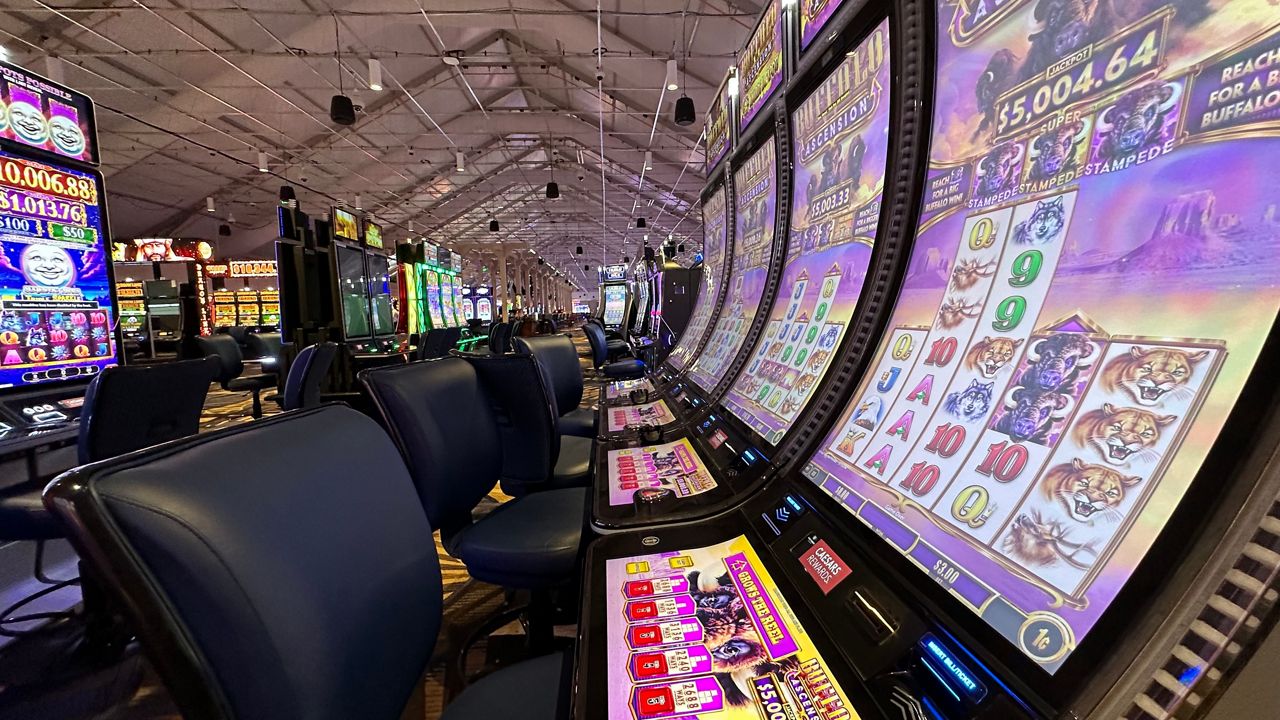A proposal in the North Carolina legislature would legalize “video gaming terminals” similar to electronic slot machines. The revenue would go to historically Black colleges and universities and help fund forgivable loans for community college students.
House Bill 512 will get its first committee hearing Tuesday afternoon. It defines the games as “electronically simulated games of chance” that the North Carolina State Lottery Commission would regulate.
Rowan County Republican Rep. Harry Warren is the only sponsor of the legislation. He proposed a similar bill in the last General Assembly session two years ago, but that never made it to the floor.
"For more than a decade, the General Assembly’s been trying to close down now what we refer to as sweepstakes parlors across the state," Warren told the House Commerce Committee. Legalizing these types of gambling machines would help shut down illegal gambling or sweepstakes parlors, he said.
The committee did not take a vote on the bill Tuesday.
Gambling has been a big topic for the legislature so far this year. The House already passed a bill that would legalize betting on sports in North Carolina. Senate leaders could pick up debate on that bill as soon as this week.
But gambling is still a sensitive topic in the General Assembly. Support for the proposals does not break down along party lines, with detractors coming from both sides of the aisle.
Lawmakers are also keeping an eye on North Carolina’s neighbor to the north. Virginia plans to open four Vegas-style casinos along the North Carolina border in the coming years. A temporary casino in Danville, Virginia, not far from the Triangle and the Triad regions, opened May 15.
The bill would legalize machines that simulate games of chance, like someone might see on the casino floor in Las Vegas or Atlantic City. The games would have to be considered “lottery games” by the North Carolina Lottery Commission.
The games would take cash to buy credits, but would not be allowed to pay out cash directly. Instead, they would give players extra credits or a ticket that could be printed out and exchanged for cash.
Businesses with an on-site or off-site ABC license, like restaurants and bars, would be allowed to operate six to 10 of the machines.
"You cannot be in a business solely for this," Warren said. Businesses can not just operate as a gambling parlor.
Businesses would not be allowed to have gaming machines within 500 feet of a church or school.
The gaming machines could bring in hundreds of millions a year, according to the General Assembly’s Fiscal Research Division. Most of that money would go to funding North Carolina’s six HBCUs and community college scholarships.
Students at community colleges who complete a program within six years would have all their loans forgiven, Warren said.
A much smaller portion of the revenue would go to grants for county sheriffs to go after illegal gambling.
The bill had a good reception with the committee. But not all the speakers from the public supported legalizing gaming machines.
"This money is money that would come directly out of the pockets of North Carolina citizens," said John Rustin, president of the North Carolina Family Policy Council. He called the gaming terminals the "crack cocaine of gambling."
A bill to legalize betting on sports in North Carolina passed the House earlier this year. It’s similar to a bill that passed the same chamber in the last session but then stalled out in the Senate.
The Senate could take up the sports wagering bill soon. The bill would allow brick-and-mortar sportsbooks to set up near venues like PNC Arena in Raleigh or the Spectrum Center in Charlotte where professional sports teams play. It would also allow people to bet on sports online.
The sports wagering bill, House Bill 347, had bipartisan support. But it certainly did not have the overwhelming support of the entire House. It passed with a vote of 64 to 45, with Democrats and Republicans falling on both sides of the vote.
During the last legislative session, House committees had long debates about betting on sports, giving members the chance to hash out issues and refine the bill. It’s unclear what the Senate could do with the bill and if the chamber plans to get it to the floor for a vote before the session ends early this summer.



